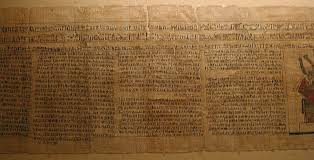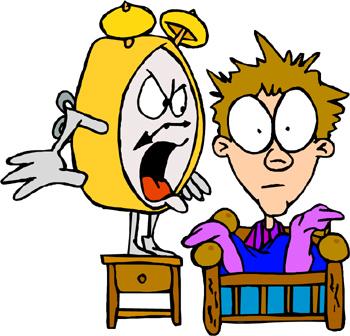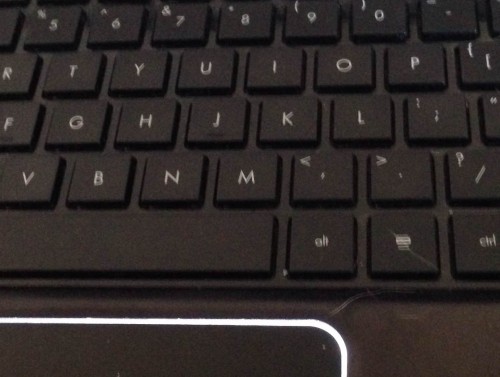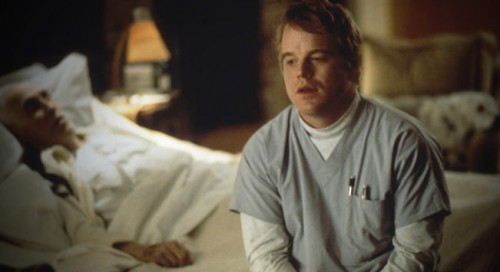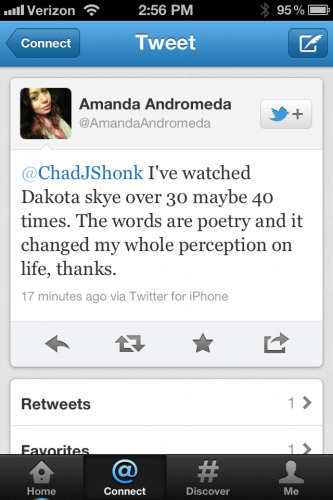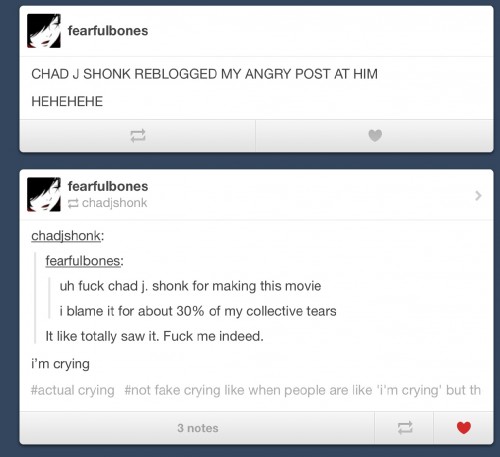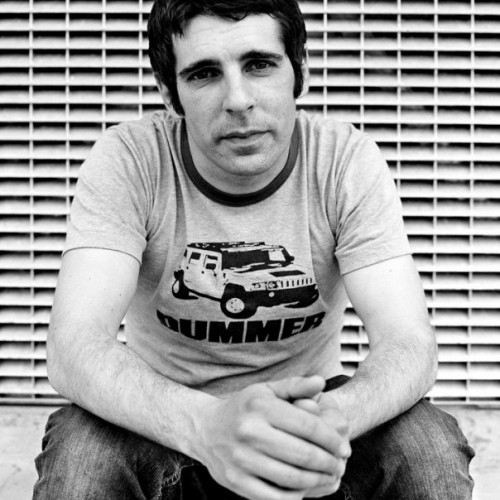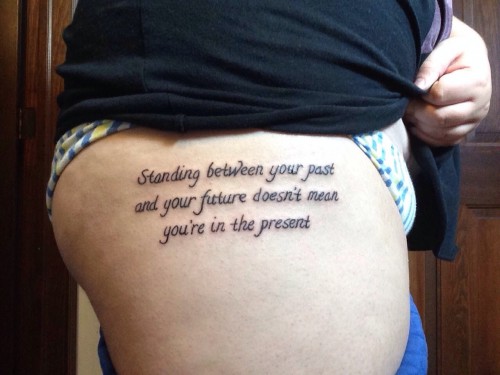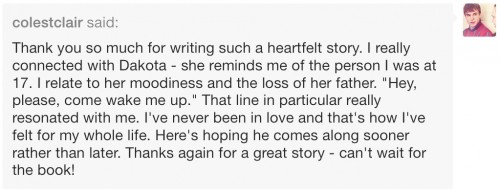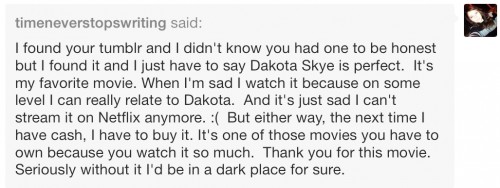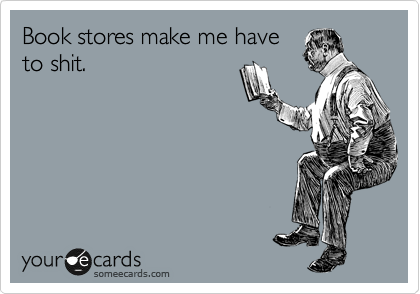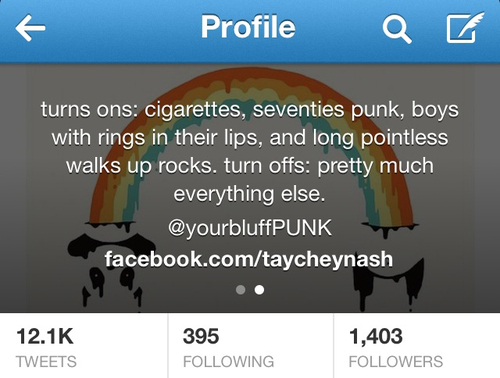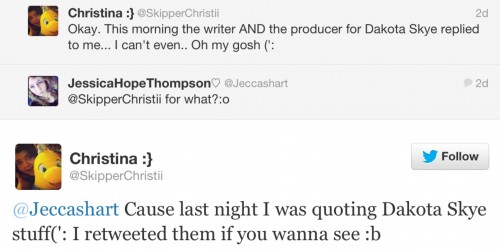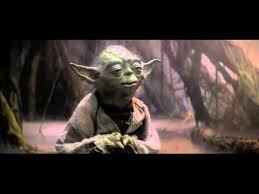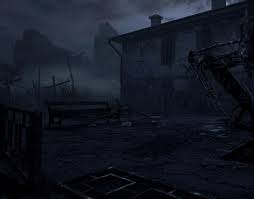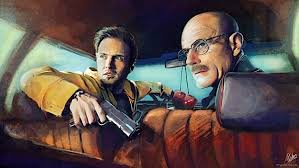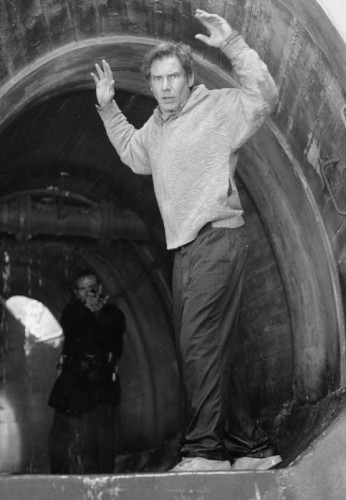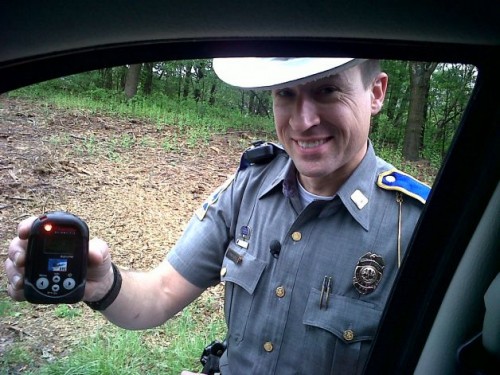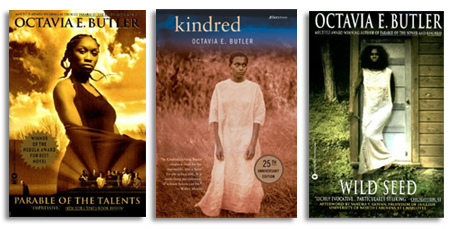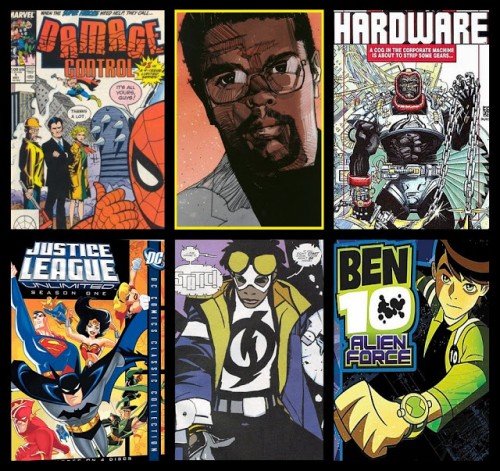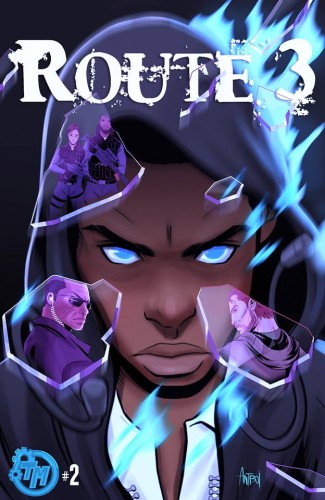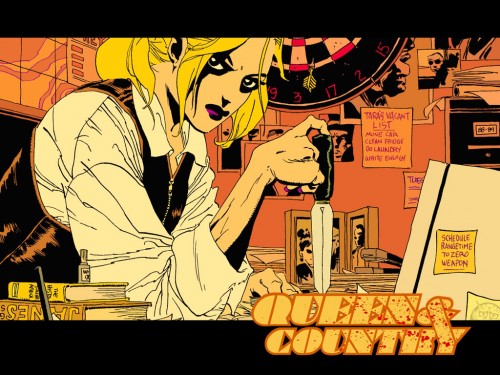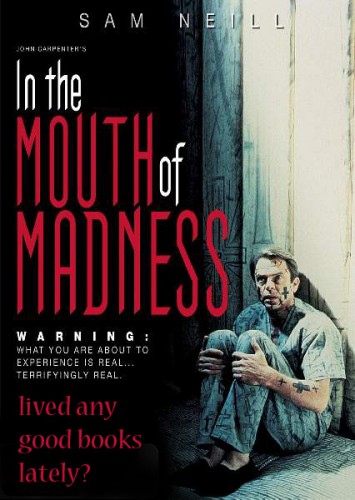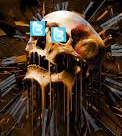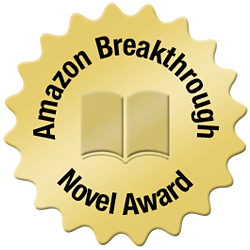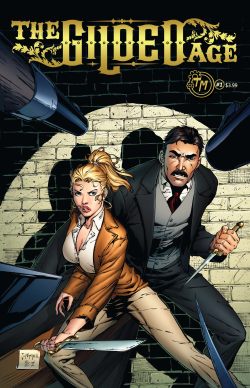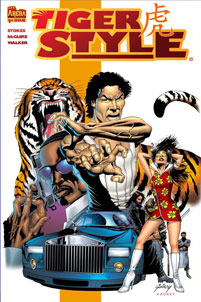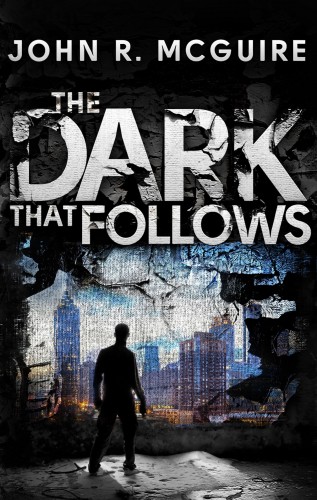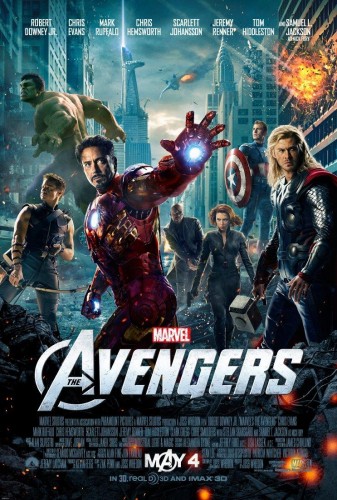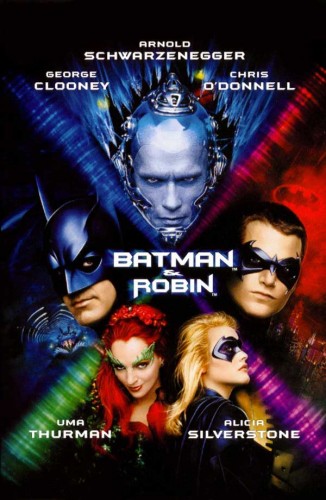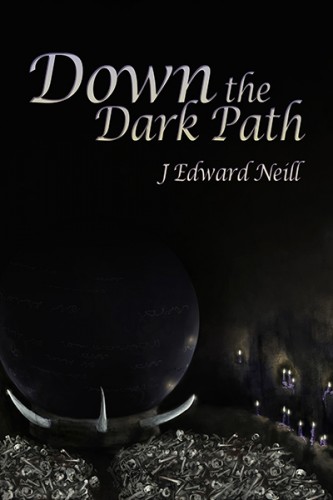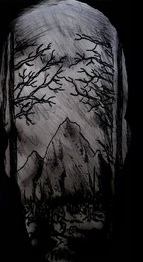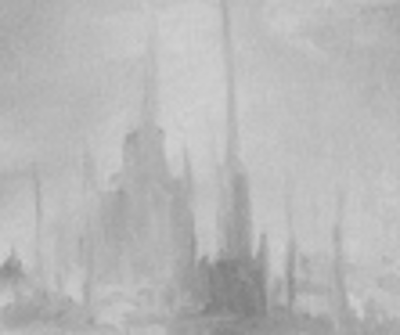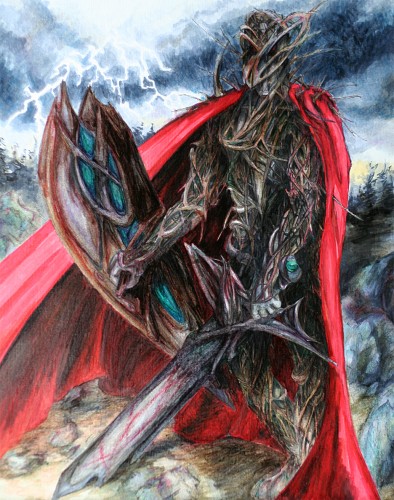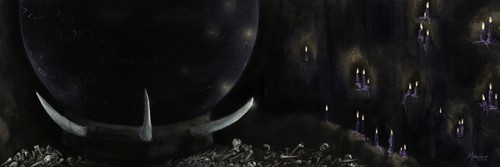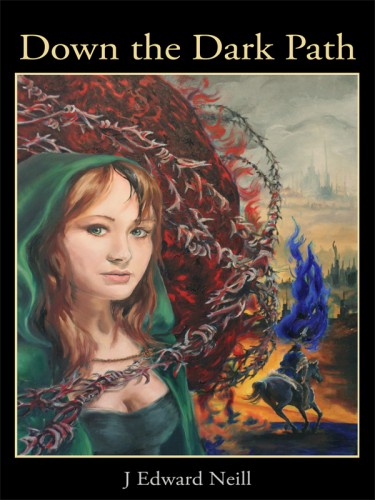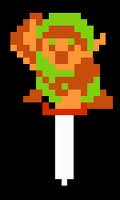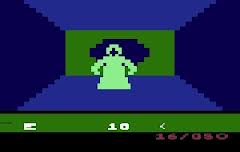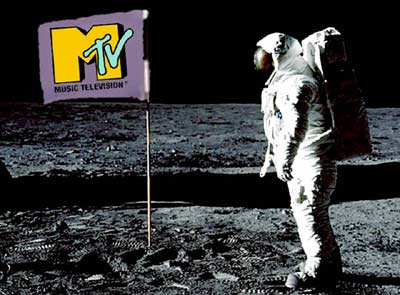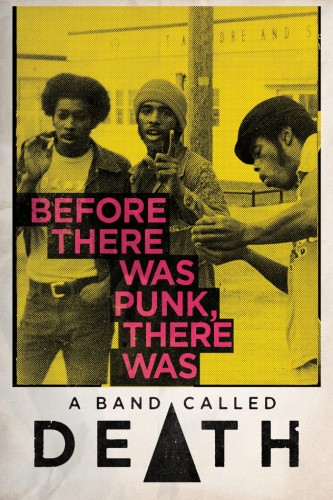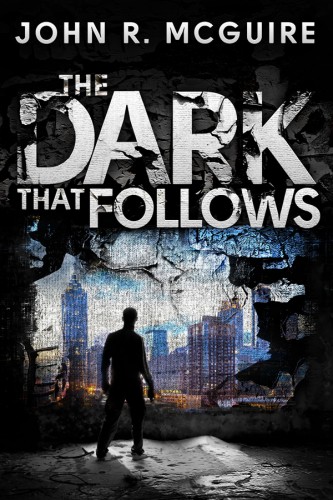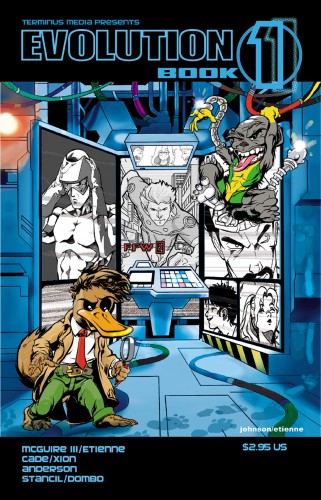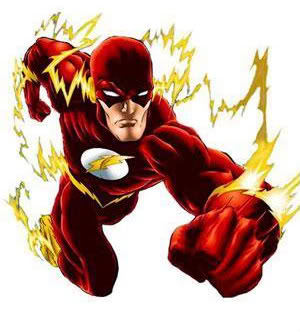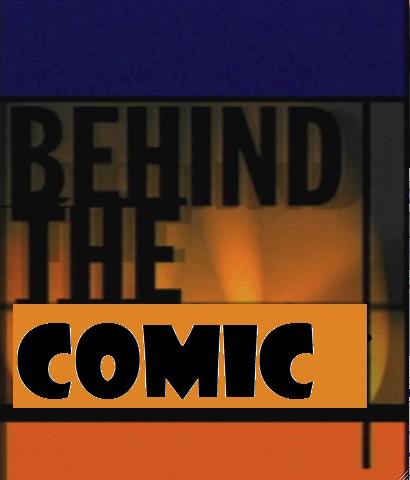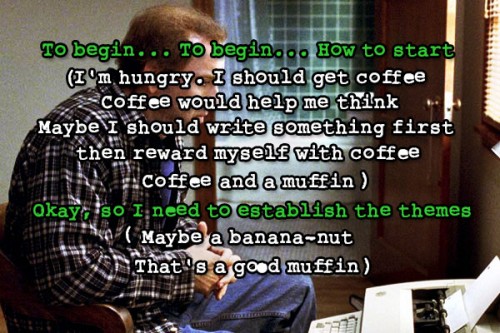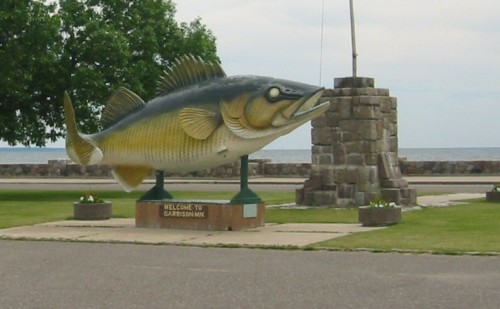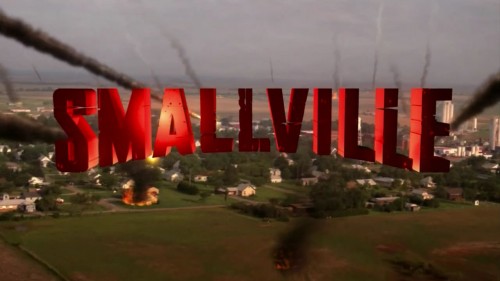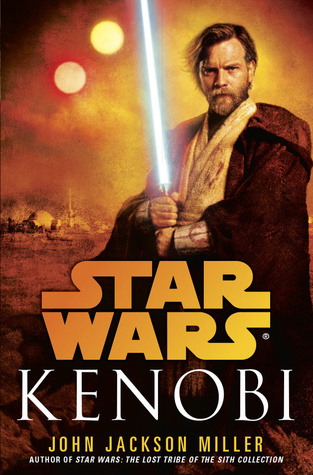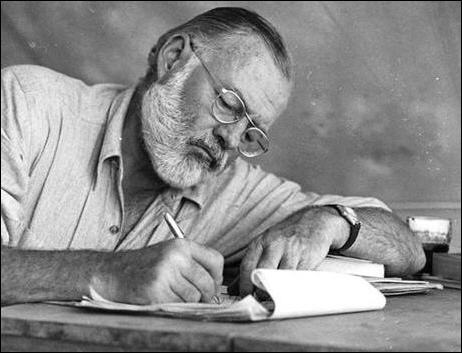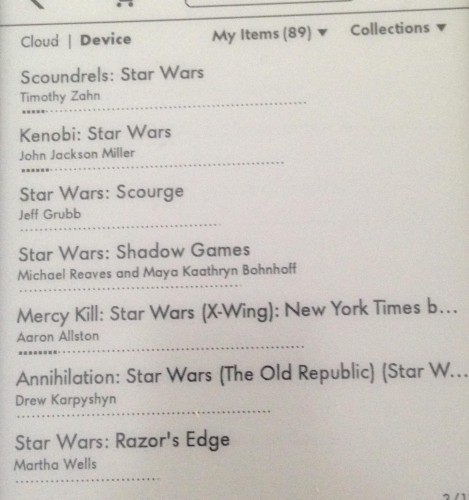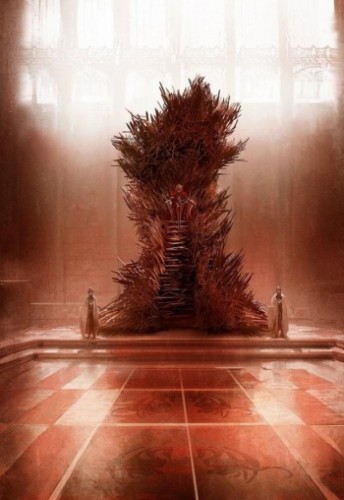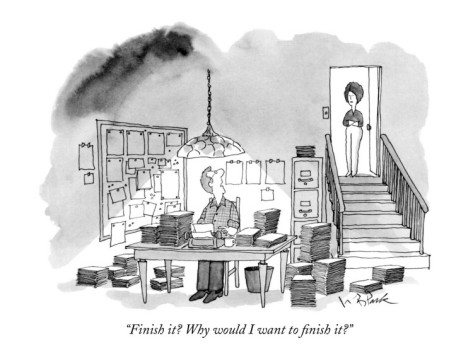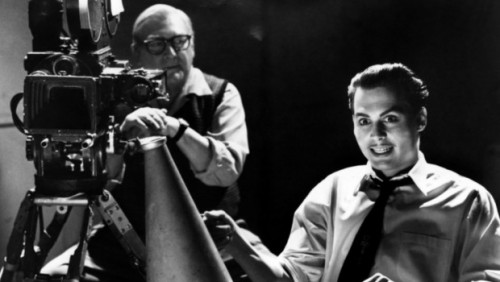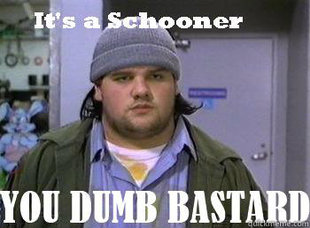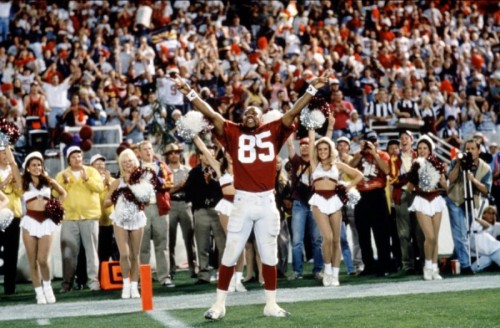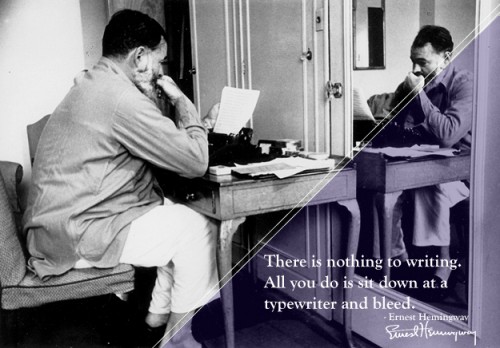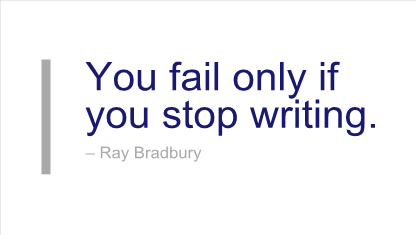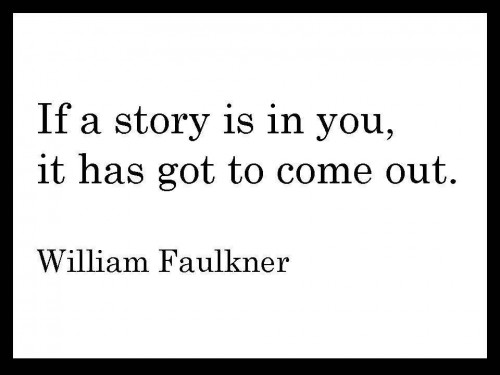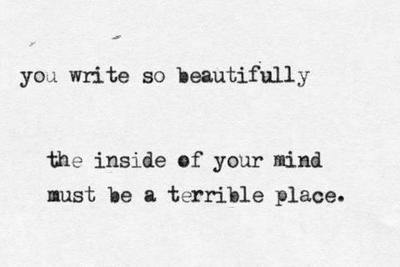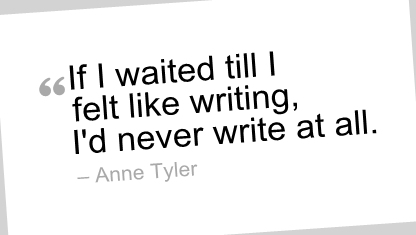
There used to be this thing called the Sci-Fi Channel. It had great potential, but it never really applied itself. It had a few brilliant moments, one in particular, where it showed itself to be the entity it should have been. But mostly it just ran away from its destiny, tried desperately to get people to like it, and struggled with its identity to the point of changing its name, forsaking its heritage. As it stands now, it is a joke to most people, only known for its most outlandish and ridiculous of efforts.
This is a quick story about my brush with the Sci-Fi Channel.
Several years ago I had a colleague (and friend) whose father was a very, very powerful man in the history of television, a near-god in the NBC-Universal family. This friend was an aspiring producer who I worked with on several projects that never got off the ground, unfortunately, although he did option a screenplay of mine once, for real money, and that was something I’ll never forget. We talked about doing this, about doing that. He almost hired me to write a script for him, but it fell apart. We were going to do a series of shorts for FunnyOrDie, but they never materialized.
One day he calls me and asks “Do you have ideas for shows we can pitch at the Sci-Fi channel?”
Hells yes, I do, let’s fucking do this, I want to do this so damn bad, it’s about time we got into something like this, woo-hoo! I thought. “I’ll jot down a few things,” I said.
So over the next couple weeks I worked on several ideas in which I thought the Sci-Fi channel might show interest and presented my list to the producer. After talking a bit, he fell in love with one idea in particular, which also happened to be my favorite of the bunch.
“That’s the one,” he said. “Let’s get cracking on fleshing it out and I’ll set up the meeting.”
I’m not going to say what the concept was because I still think it’s a very viable idea and have plans to resurrect it. So I can’t give it away for free. But I will say… it’s pretty great.
So while I was putting together my pitch -figuring out the pilot, plotting out the first season arcs, creating the cast of characters, coming up with a half-dozen sample episodes, putting down a rough idea of what future seasons would bring- I learned that we would not be meeting with some low-level exec over at Sci-Fi. Oh no. We would be meeting with the VP in charge of original programming.
In charge. Of original programming.
Meaning, if he liked the show, he could probably green light it himself.
That upped the stakes, so I upped my game.
We went into the meeting with what I think was a solid, entertaining pitch. We also had a back-up project, something that I had tried to get off the ground in several mediums (film, comics) but had never followed through on. It was a back pocket pitch, only to be used in case we got the dreaded “what else do you got?” question after the exec was unmoved by our marquee concept.
I was nervous as hell. It wasn’t my first pitch meeting but it was, at that time, my biggest. And I knew that the only reason I was going to be pitching to someone that high up was because of the man walking in the door next to me, and mostly because of his last name. Because Sci-Fi is an NBC-Universal channel and the name that he carries can probably get him through any door that falls under that massive umbrella of media.
I got to the meeting early and hung out outside the massive skyscraper in Century City. I met my producer in the courtyard, and we went over some things. The way pitches usually work for me is simple: I need a straight man. Someone to keep the conversation, the presentation, on track. Then, when we need to inject energy, ideas, and just the creative thrust of the thing, it’s my turn to talk. If you know me and are reading this, you know I talk too much. And I ramble, repeat myself. Especially if the subject excites me. So I always need a baseline yin to my erratic yang.
So my producer would yin while I yanged. No problem.
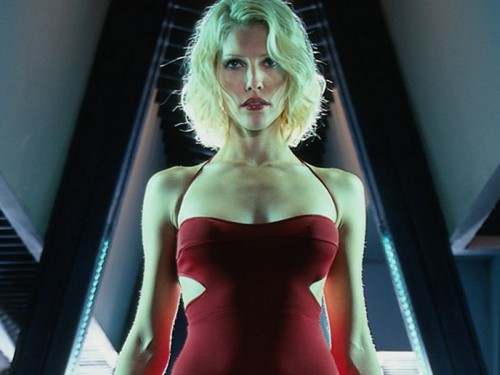 Now, at the time, the Sci-Fi channel’s sole artistic triumph was nearing its end. ‘Battlestar Galactica’ had its problems, especially towards the end, but it’s impossible to deny that it was a good show and, at the very least, considering what had come before, a great science-fiction show. It was the type of program we had all hoped the Sci-Fi channel would be bringing us since the beginning. And, with its critical (but not ratings, that’s important) success, I think a lot of us were excited for a new era where this channel, that claimed to specialize in a genre we loved, was about to break through in an HBO/AMC/FX sort of way.
Now, at the time, the Sci-Fi channel’s sole artistic triumph was nearing its end. ‘Battlestar Galactica’ had its problems, especially towards the end, but it’s impossible to deny that it was a good show and, at the very least, considering what had come before, a great science-fiction show. It was the type of program we had all hoped the Sci-Fi channel would be bringing us since the beginning. And, with its critical (but not ratings, that’s important) success, I think a lot of us were excited for a new era where this channel, that claimed to specialize in a genre we loved, was about to break through in an HBO/AMC/FX sort of way.
But BSG was expensive. And not enough people watched it.
So it was going away. To the channel’s credit, most people would have pulled the plug after the first two seasons (and by ‘people’ I mean ‘networks’) but they stuck with it. But it never found enough of a mainstream audience to justify the amount of money they were spending.
And, at the same time, Sci-Fi had a new show, a very different show, that was doing much better in the ratings. More on that in a bit.
So we go into the very nice office of this very powerful man and I’m sure my voice shook for the first ten minutes or so. He was very nice, this exec, as was his assistant, who also sat in on the meeting.
After a few platitudes, I went about pitching my television show.
And it went really well.
I talked for a while, describing the premise, the characters, the show. What drew me to the material. What passions of mine were wrapped up in its conceit. While I was doing this, my producer was chiming in on logistical things, comparing it to other successful shows and films, trying to stress why letting this babbling (although in that case, effectively babbling) guy that had no right being in that room create a show would not be a terrible business decision.
One of the ways you can tell a pitch is going well is if it gets interactive. A rule of these types of meetings is to never bring in any of your ideas on paper. I wrote up tons of stuff for this idea, did research, plotted out stories, but brought none of it with me. Because when you’re in the room, what you want in the exec to get engaged. To start chiming in with his own ideas. You also want to be able to read what’s working and what’s not and cater your pitch, improv if you will, to appeal to the pitch-ee. The goal is to have, at the end of the meeting, sold the producer a show that he or she wants, not a show you want.
So you never leave behind a document that lays out what you came in there with, because most likely you have had to change some things to appease your audience and the last thing you want them to do afterwards is read a synopsis or treatment that is not exactly the show you just pitched them.
It is a hard and fast rule for pitching: never leave behind a document. If they want one, go home, revise what you’ve got, then send it in. But never leave it in the room.
Anyway. I got what I wanted out of this guy. He was engaged. After responding very favorably to the main conceit, he started asking questions and it turned out he and I had a lot of similar interests. He started adding things, suggesting episode ideas, tweaks to the story, different angles on things. The show had a large ‘alternate history’ element, which is a very hardcore sci-fi subgenre, but the real history I was riffing off of ending up behind something this exec was a huge fan of. Actually, he knew more about it than me and I had to work hard to keep up with him.
At the end, we had laid out what I think would have been a fantastic science fiction television show, a worthy successor to Battlestar Galactica.
“Chad,” the exec said, “I love it. Love the concept. I think it’s original, smart, and if done right, could be really great.”
Yes yes yes!
“And if that show was on TV, I would watch it every week.”
Oh no oh no oh no…
“But it’s just too sci-fi for us.”
It’s too what now?
Looking back, it feels like I stared at him dumbstruck for at least a minute, although it was probably only ten seconds. I do know, though, that I looked up to the big Sci-Fi channel logo up on his wall and then back to him, and that he noticed that. I tried to play cool.
“Too sci-fi?”
He went on to explain that they were looking for things with broader appeal and that my idea was a little too hardcore for general audiences. That they needed shows that were more user-friendly, that my mom or someone would want to watch.
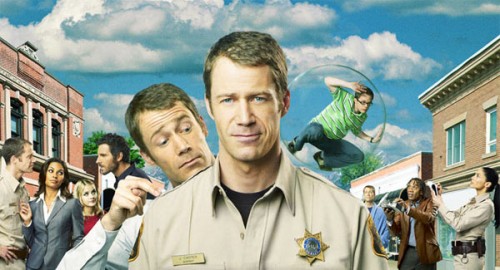 “Like what?” I asked, seething inside.
“Like what?” I asked, seething inside.
“Well, we’re looking for more shows like ‘Eureka’.”
I did not watch ‘Eureka’ so I don’t have an opinion on it either way. I know several people that watched it and one of the writers, Eric Wallace, is a friend of a friend of a friend who I also once sat on a writing panel with. But I do know the concept of ‘Eureka’ and I know what kind of show it was. And I have nothing against it. But…
“You already have a ‘Eureka’,” I said.
But they wanted another. Why? Because it was doing well. Because their numbers showed that people who normally didn’t stop on their channel were tuning in for it and only it. It was the crossover hit they’d been looking for.
“I would love to make your show, Chad. I would. But I just can’t.”
The rest of the meeting was cordial. We pitched our backup idea, which they responded to and we promised we’d send pages but we were never able to break that concept. I’ve pretty much scratched it. It sounds good on paper but I’ve never figured out a way to make it work.
At the end of the meeting, I think I asked if they still planned on making any more ‘silly monster movies’, because I played D&D and I could lock myself up for a month with my Monsters Manual and write them like four of those.
He said they were trying to move away from those.
Guess no one else got the memo:
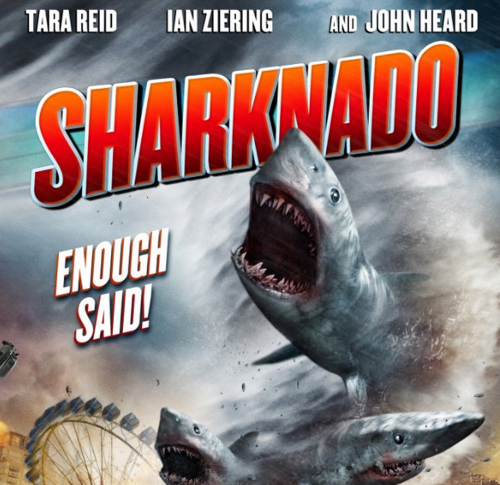
I walked away feeling good about the meeting and shitty about the outcome.
“Too sci-fi”?
“TOO SCI-FI”?
In the days that followed I had one of those “man I wish I would have said this” moments where a speech popped into my head that if I would have actually said in the room, I would have blown the meeting entirely:
“WHAT THE FUCK DO YOU MEAN ‘TOO SCI-FI’?!? This is the Sci-Fi Channel. Let me break this down for you. My mom is NEVER going to stop on your channel while surfing. NEVER. I don’t watch hockey and have never once flipped to the NHL channel. You don’t see them trying to crossover to more popular sports: “Tonight on the NHL Network…the 1998 Home Run Derby!”. No. They are niche. What they do is in their name. NHL. That’s it. You are the fucking SCI-FI channel. Stop being ashamed of the genre that you are named after. Because there are millions and millions of TV viewers that aren’t going to check you out simply because of that phrase: sci-fi. Deal. With. It. Embrace it. Because you know what? Science-fiction fans are LOYAL. Geeks are LOYAL. If you give them good genre shows, they will flock to you. BSG should be your model. Was it too expensive? Okay. Fine. You can do something cheaper. Is ‘Eureka’ sci-fi? Absolutely. Keep it. But you have the corner on this: you are the only Sci-Fi Network. We WANT you to succeed. We WANT you to be viable. We also want you to live up to the promise you made when you chose that name. ‘TOO SCI-FI?’ FUCK YOU!”
Saying that would have been dumb beyond belief, but that’s how I felt.
So, a few years after my meeting at Sci-Fi, they did indeed address this problem. Did they unveil a slate of awesome-looking genre shows? Um. No.
They changed their name to SyFy.
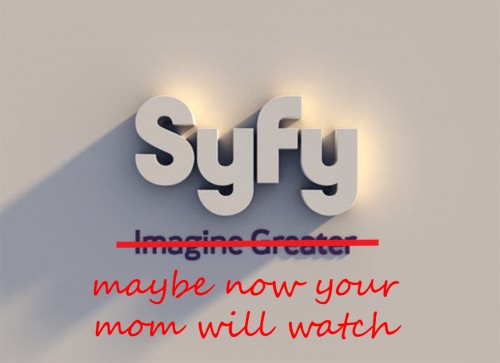
Which, of course, means nothing. But at least it’s not promising science-fiction anymore.
So stupid and cowardly. And meaningless.
Because my mom still doesn’t tune in.
Looking today at SyFy’s programming for today I see: 11 hours of ‘Face Off (a reality show), a shitty horror movie for Halloween (The Ninth Gate…ugh), and an episode of ‘The Twilight Zone’ (can’t fault them on that).
And I’m sure this weekend they’ll treat us to the tale of some sort of aquatic predator crossed with some sort of dinosaur chasing and eating people during some sort of natural disaster, starring has-been TV actors and other Hollywood cast-offs.
Man, that’s some good SyFy.
This post isn’t about bitterness. It’s a lament. Not for my own career, but for a cable channel that I really wanted to succeed. But it’s now a joke, only known now for its stupid, stupid new name and its even stupider schlocky monster movies. A junk channel, traitor to its conceit like Discovery and History. What a waste.
For all its faults, failures, and foibles, the one thing you can never accuse SyFy of is being…
Too Sci-Fi.







